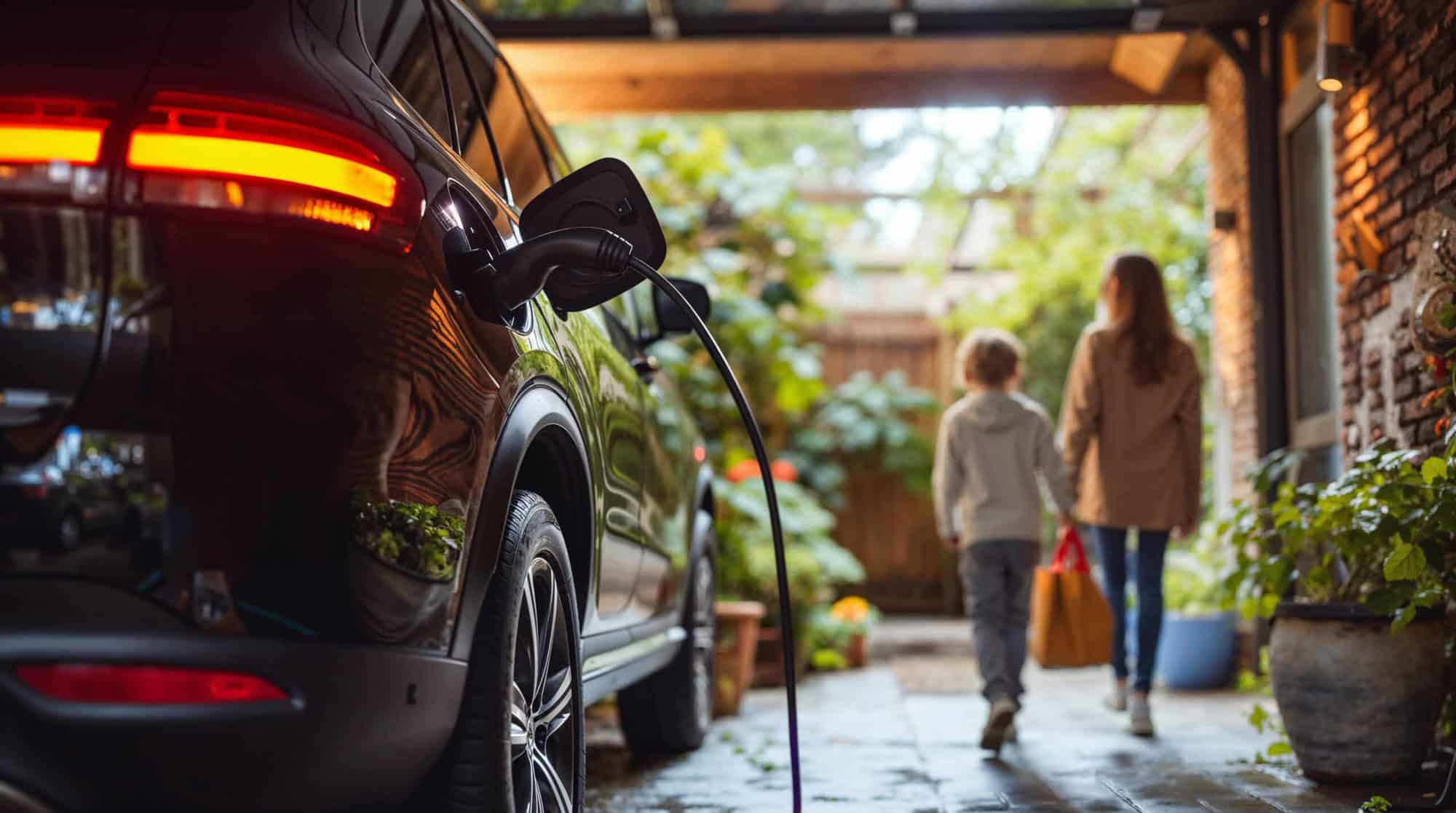Switching to electric appliances, vehicles and other smart home controls is one of the easiest ways you can make your home safer and more energy efficient.
Electrification, the process of replacing gas-powered options with electric alternatives like electric heat pumps and electric vehicles (EVs), helps reduce pollution inside your home and across our neighborhoods.
Going electric at home can help you lower your carbon footprint, improve indoor air quality and increase energy efficiency. With electric smart devices, you can schedule your energy use away from hours when electricity is in high demand and costs more. This can help lower your energy bill and support a more reliable energy grid.
Electric appliances like induction cooktops reduce indoor air pollution and the risk of gas leaks, home fires and burns from open flame.
Electric options can be up to five times more efficient than their gas counterparts. When you plan your energy use around hours when demand and prices are highest, you can realize long-term bill savings.
Electric appliances, heat pump water heaters and EVs reduce air pollution by replacing gas-powered options that release harmful emissions. Breathing cleaner air lowers the risk of asthma, cancer and other health issues.
Electric heat pumps use up to four times less energy than gas systems, providing efficient heating and cooling year-round. Add smart thermostats and zoned controls to preheat or pre-cool your home during times when energy is at a lower cost, helping you save on your energy bill and boost your comfort at home.
Heat pump water heaters use heat from the air instead of burning gas, making them three times more efficient than gas options. Smart models can preheat water during times when energy is at a lower cost, helping you save even more.
Induction cooktops heat faster and offer better control than gas or older electric stoves. They are easier to clean, reduce the risk of home fires, minimize burns and lower indoor air pollution.
Heat pump dryers use up to 50% less energy than traditional gas models by recycling warm air instead of venting it outside. They also operate at lower temperatures, which helps protect your home and your clothes from damage.
Electric grills, patio heaters and heat pump pool heaters offer convenient alternatives to gas-powered systems. They are easier to maintain, more energy efficient and better for your community’s air quality.
Electric fireplaces and saunas provide comfort without burning gas. These options make a healthier and safer home by reducing indoor air pollutants and lowering the risk of gas leaks.
You don’t have to be a homeowner or take on a remodel to go electric. Small, portable electric appliances are an easy way to make the switch. Microwaves, electric kettles, air fryers, toaster ovens and induction hot plates are great alternatives to gas stoves, ovens and cooktops in everyday cooking. These appliances are safer, reduce air pollution and often use less energy overall. Many of them are compact, affordable and energy efficient which makes them a practical option for renters or anyone looking to reduce energy use without major home upgrades.

Modern electric appliances are powerful and efficient, but some homes may need more electrical capacity to support larger appliances, like an electric stove or heat pump. It is important to prepare your home and consider a professional home energy review before investing in major electric upgrades.

Electric vehicles offer a smarter way to drive. They are quieter, more efficient and often cheaper to own over time. With more models available, expanded charging options and generous rebates, EVs can be a practical option for drivers while reducing air pollution.
Schedule a home energy review with a professional to learn what upgrades make the most sense for your lifestyle. Whether you’re adding an EV charger or switching out old appliances, you can plan the space for your upgrades and even bundle projects to help save money and reduce hassle.
Work with your contractor to prepare your home. Improving insulation, sealing air leaks and checking your electrical panel to ensure it can handle your electric upgrades are a few ways you can make the most of your investment.
Find rebates, incentives and offers that can help lower your upfront costs and increase your long-term savings.